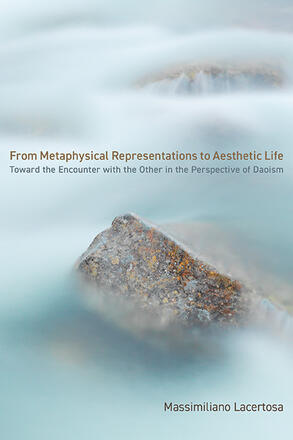
From Metaphysical Representations to Aesthetic Life
Toward the Encounter with the Other in the Perspective of Daoism
Alternative formats available from:
Reevaluates Western and Chinese philosophical traditions to question the boundaries of entrenched conceptual frameworks.
Description
What is "Chinese philosophy?" What is "philosophy" itself? How can one understand unfamiliar philosophical stances? How can comparison become a prominent philosophical tool? In this book, Massimiliano Lacertosa examines these questions by proposing an ethical understanding of the aesthetic encounter with the other and the world. Through the analysis of the works of Laozi, Zhuangzi, Nietzsche, and Heidegger, among others, this book explores the possibilities of stepping out of the anthropocentric standpoint and seeing the relation of objects in the world under a different light. This implies a shift from the metaphysical representation of the world divided between the sensible and the supersensible to an aesthetic and undivided experience of the world in which one partakes in the constant transformation of the myriad things. Approachable yet rigorous, this book is essential reading for anyone interested in the most fundamental issues of philosophy and in the challenges of doing philosophy in a multicultural context.
Massimiliano Lacertosa is Assistant Professor of Philosophy at the University of Warwick.
Reviews
"This book's original and textually nuanced inquiries into Daoism avoid the all-too-common reliance on a one-sided interpretation of Heidegger's writings. Building on existing analysis, it reveals that Heidegger's conception of world-view philosophy prevented his genuine engagement with Chinese thought. Lacertosa's analysis of Laozi and Zhuangzi shows a number of concrete ways in which 'Chinese philosophy' can communicate messages that are missing or distorted in current Western philosophy. It will play a role in overcoming the unilateral trend in comparative philosophy, especially when it comes to Heidegger." — Lin Ma, author of Heidegger on East-West Dialogue: Anticipating the Event